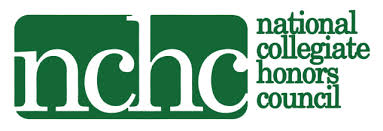Hopeful and Powerful: Nonviolent Action in Global Culture
Seminar - UHON 401
Instructor(s): Leslie Donovan
Course Description
Through several short research projects, we will learn how witty protest signs, stirring speeches, and committed marchers have effected hoped-for change in the minds and hearts of governments as well as bystanders. Using co-learning practices in which we actively seek out new information to share with each other, we will investigate how poems and graffiti, music and sermons, flash mobs and songs, and a multitude of objects from art and nature are employed to communicate powerful messages for nonviolent change. While materials and assignments are rooted in history and contemporary news sources, our work together also will incorporate such interdisciplinary fields as political science, philosophy, communication theory, art and design, music, popular culture, sociology, and oral history. However, even though the river of nonviolent resistance runs wide and deep, this course will introduce only some of its most general principles and uses. By collaborating to understand this vital force of community engagement and inspiration, our goal is to gain a basic appreciation for the growth and relevance of nonviolent thought and action in the 21st century.
Texts
A Force More Powerful (1999 documentary film in 2 parts, each about 1:20 minutes long)
Dolores (2018 documentary film, about 1:40 minutes long)
Nonviolent Lives: People and Movements Changing the World Through the Power of Active Nonviolence by Ken Butigan
Civil Resistance: What Everyone Needs to Know by Erica Chenoweth
Nonviolent Struggle: Theories, Strategies, and Dynamics by Sharon Erickson Nepstad
Dandelion Insurrection by Rivera Sun
Additional online readings and videos on nonviolent resistance will be assigned on the following topics: Las Madres de Plaza de Mayo; indigenous peoples in Latin America; women in nonviolent actions; disability rights protests; global student protests; climate change activism; American Indian movements in the late 20th and early 21st centuries; Chicano/a/x power; Asian actions; LGBTQ+ protests; efforts in Eastern Europe, the Middle East, Africa, Australia and New Zealand; and others
Requirements
Extensive honors community-building requirements (such as attendance, participation, and online discussion), 3 projects (video, analysis, creative), and a final portfolio.About the Instructor(s): Leslie Donovan
Leslie Donovan completed the Honors Program and her BA and MA at UNM, before earning her PhD in Medieval English Literature from the University of Washington in Seattle. She teaches courses about the works of J.R.R. Tolkien, creativity, the future, classical and medieval cultures, the Nobel Peace Prize, and nonviolent action. Dr. Donovan has been honored with multiple outstanding teaching awards, including UNM’s Presidential Teaching Award.



Social Media
For news, information, prizes and more fun stuff follow us on our social media!
Honors College Resources